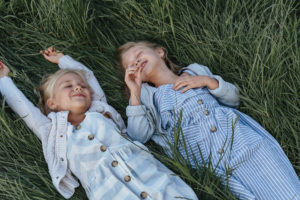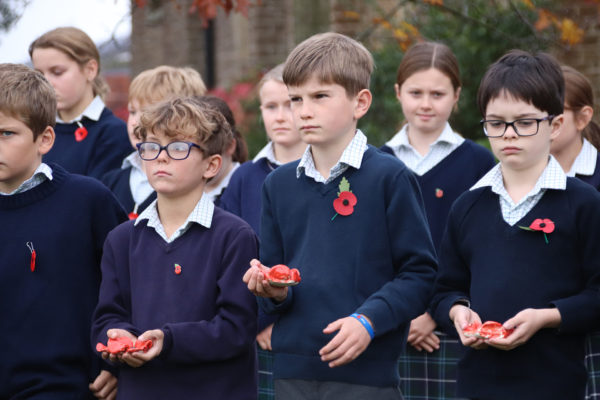Students Are Driving Environmental Initiatives
By
2 years ago

Students are passionate about environmental issues, says Emma Reed – and they are driving school initiatives with real impact
Environmental issues can seem overwhelming in scale for all of us but they have a particular impact on teenagers: a study in The Lancet published in 2021 following a survey of 10,000 young people across 10 countries reported: ‘Climate anxiety and dissatisfaction with government responses are widespread in children and young people in countries across the world and impact their daily functioning.’
But today’s students are far from placid or powerless. As the policy makers of tomorrow and, with this in mind, they are also the ones driving awareness and change, especially within schools.
Stowe has had an active environmental group for a considerable time, initially looking at the environment within the school itself and its grounds in areas such as recycling and partnering with the National Trust. In recent years, this has greatly expanded. Tori Roddy, Group Director of Marketing and Admissions, explains that three years ago, a group of Sixth Formers passionate about environmental issues set up a Climate Action Group via the Geography Society. ‘They’ve lobbied the executive team here to set a target for carbon net zero and they wanted to give opportunities for children from state schools to be involved in learning about climate.’ This resulted in a huge conference with state schools from across the country joining in. Roddy explains how they secured a donor to support it who was able to bring in John Sauven, previously executive director of Greenpeace, and TV presenter Michaela Strachan.
The group have also been instrumental in arranging for Luke Jerram’s artwork Gaia, a replica of Earth, measuring seven metres in diameter, to be displayed in one of the state rooms at Stowe during the Autumn term where it can be viewed by other schools and members of the public, serving to open up dialogue around habitat and climate change. They have also run climate action days with 100 pupils applying to be climate ambassadors for the day. ‘They feel like they have agency,’ notes Roddy. ‘It’s the job of schools to make sure they feel they can go out and think of solutions. It’s incredible what they can use their platform to do.’

Fast fashion is an issue that is often highlighted by pupils. At St. Catherine’s, Bramley, Eco Prefect Lottie arranged a clothing sale to raise awareness of the negative impact of fast fashion. The event, ‘Don’t Throw It Out – Throw It On!’ involved staff modelling clothes to promote it. ‘I’m quite passionate about second hand clothing,’ says Lottie, ‘and I wanted to do something to raise awareness about how fast fashion is a really big problem. We had people bring in donations and raised just under £400.’ At St. Edward’s Oxford, Sixth Formers Edie Douglas-Pennant and Alice Kenelm put on a sustainable fashion show in March. Eco Society Secretary, Venetia Hamilton explains that the clothes were provided by Oxfam; ‘We were inspired to make creative fashion choices that also reduce our carbon footprint.’
Charlotte Schofield, a teacher at St. Edwards in charge of the school’s Eco Society mentions that Hamilton, along with the other Secretary of the Eco Society, Seb Wilcox, set up a group chat of interested pupils across all year groups where they established the areas they wanted to focus on. These were, alongside fashion, the reduction in plastic pollution and the promotion of plant-based food. This led to a school assembly on sustainability in March with a focus on taking action in those areas.
Caroline Willis and Nabila Gordon teach maths at St. Catherine’s and are Eco Group staff leaders. They emphasise how much is pupil-led, whether it’s with initiatives from the Green Kittens group in the prep, or the Green Cats in the senior school. ‘We believe that by giving our students a platform,’ they say, ‘where they can feel heard and empowered to suggest changes and ways to improve the sustainability of our school and our local area, we are also giving them the self-belief and confidence to know that when they are out in the workplace, they can also be heard; they can be changemakers. With 37% of UK firms now appointing Chief Sustainability Officers, for a young person who feels passionate about environmental issues, a new potential career path has emerged.’ Pupils have been involved in the nationwide ‘Guardians of Grub’ initiative to reduce food waste and the school is also a member of the UK Sustainability for Schools Network where the older pupils exchange ideas with other local students.
Speaking to Eco Prefects Lottie and Emily, it’s evident how seriously they take their roles and the satisfaction they gain from being able to actively do something rather than just reading about it. Lottie has been involved in producing newsletters for the school on such topics as the Willow Project and the UN High Seas Treaty, learning much in the process and being able to raise awareness more widely.
Some pupils are achieving significant recognition for their eco efforts. At University College School (UCS), Hampstead, Sixth Former Anna and Year 10 pupil Stefan were recognised as Eco Champions for their engagement with environmental issues at the Camden Eco Champions Awards. Anna has led their Green Impact campaigning group and helped organise the school’s inaugural Sustainability Open Evening last year, and Stefan has been heavily involved in air pollution monitoring having built a portable air monitor using his coding and problem-solving skills. Year 10 pupil Alexander has designed reusable coffee cups which are sold at breaktime to raise money for Parley, a charity that cleans up ocean plastics. UCS is now also moving over to a 100% renewable energy provider thanks to Sixth Formers’ research into companies offering this and presenting their findings to the school’s Head of Estates.
Engagement from pupils ranges from the small but effective initiatives to those on a grander scale. At Liberty Woodland School in South-West London, pupils hosted ‘Save our Futures,’ a London-wide community festival in April 2022 including speakers from COP26. Environmentalism is taught as a core skill by a specialist teacher and there is an active pupil-led Eco Committee that has been involved with reducing food waste and litter, recycling and improving the school’s pond. With a child-centred approach to learning, pupils feel fully involved. ‘We’ve had meetings to discuss our ideas,’ the committee says, ‘and then we have had an assembly where we were able to share our ideas with the whole school and all the teachers. We also have a newsletter so that parents know what we have been doing and our own board to add information for children and parents. We do feel listened to.’
At Gresham’s School, Norfolk, pupils forming the Eco Committee, ‘Team Eco,’ appreciate the value in starting at ground level. ‘We are making an effort to reuse old materials, plant trees and create a biodiverse area,’ they say. ‘Although it may not have a large impact on the overall issue, we believe that everything we do will have a positive effect. Every little bit counts! The staff at Gresham’s have been incredibly supportive of our project. We have frequent meetings with the Estates Department and greatly appreciate the help and advice we are given, as well as the support of the various teachers to make our plans come to fruition.’
It feels only right to leave the final words to Year 10 pupil Daniel, one of those making changes now as a member of Gresham’s Team Eco and who could be one of those changing the future for the better: ‘I feel being involved in these groups is one of the first steps people can make to help the environment,’ he says ‘I personally feel good about myself doing this as I know I’m making a difference, whether it is big or small.’






